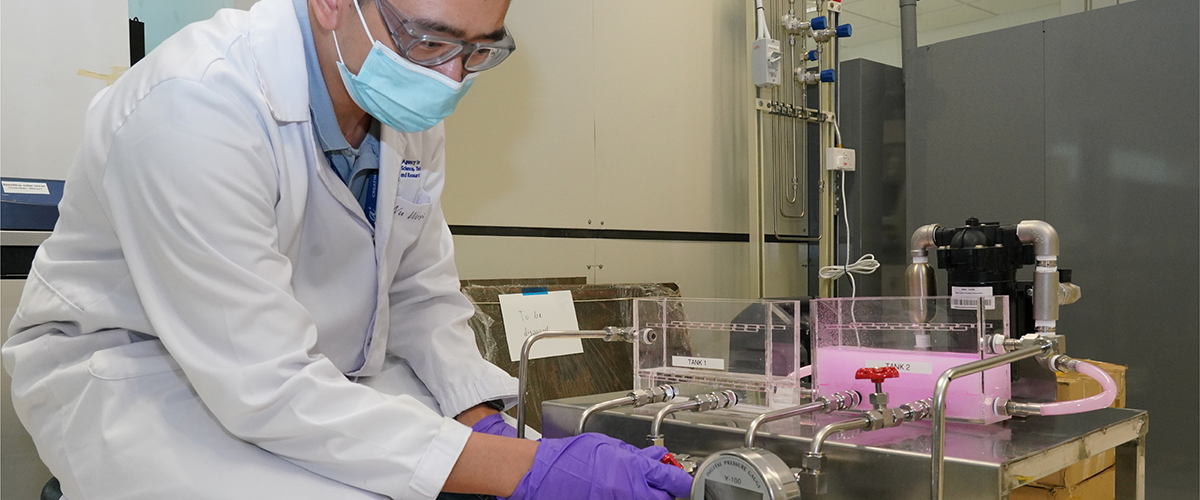RESEARCH IN SIMTECH
Sustainable and Circular Process Technology (SCPT)

INTRODUCTION
Aligned with the Singapore Green Plan, the Zero Waste Masterplan sets to make Singapore a sustainable, resource efficient and climate resilient nation. One of the aims is to adopt a circular economy approach. To close the loop, and be able to handle new wastes generated from innovations, it is essential to develop enabling process technologies in waste-to-resource management.
SCPTG focuses on innovating process technologies and capabilities to enable a decentralised approach for sustainable production and resource circularity. Other than developing materials, processes and systems for smart segregation and resource repurposing in waste-to-resource management, the group looks to collaborate extensively to co-develop and drive manufacturing processes to be more sustainable and circular.
CORE COMPETENCIES
- Smart Segregation and Sorting Technologies:
- Smart Sensing for waste separation
- Segregation technology
- Miniaturisation Technology
- Resource Renewal and Repurposing Technologies:
- Smart sensing for recovery
- Waste-to-resource conversion and valorisation process technologies
- Sustainable new materials and applications
TECHNOLOGIES FOR LICENSING AND TRANSFER
- Ceramic membrane for molecular separation and filtration (water, solvent recovery)
- Angstrom pore size for greater filtration selectivity
- Ability to separate and recover solvents from water-solvent and solvent-solvent wastes
- Suitability for high temperature processes
- Potential applications include increased organic solvent resource utilisation and resource circularity. It may be fitted into systems for close-loop continuous manufacturing as well
- Multi-physics water treatment using Advanced Oxidation Process (AOP)
- Hybrid multi-physics process for synergistic effect to improve the treatment efficiency of organic contaminants in wastewater
- Non-chemical process with configurable and scalable modules for sustainable wastewater treatment
- Smart bin
- Uses image recognition technology to identify wastes and have them sorted into either general or recyclables
- Increases awareness and dispels misconceptions regarding recyclables through a smart sorting system
RESEARCH PARTNERS
- A*STAR Urban and Green Tech Office
- A*STAR Institute of High Performance Computing
- A*STAR Institute of Chemical & Engineering Sciences
- A*STAR Institute of Materials Research and Engineering
- National University of Singapore
- Nanyang Technological University
A*STAR celebrates International Women's Day

From groundbreaking discoveries to cutting-edge research, our researchers are empowering the next generation of female science, technology, engineering and mathematics (STEM) leaders.
Get inspired by our #WomeninSTEM
.png?sfvrsn=843a4005_8)
